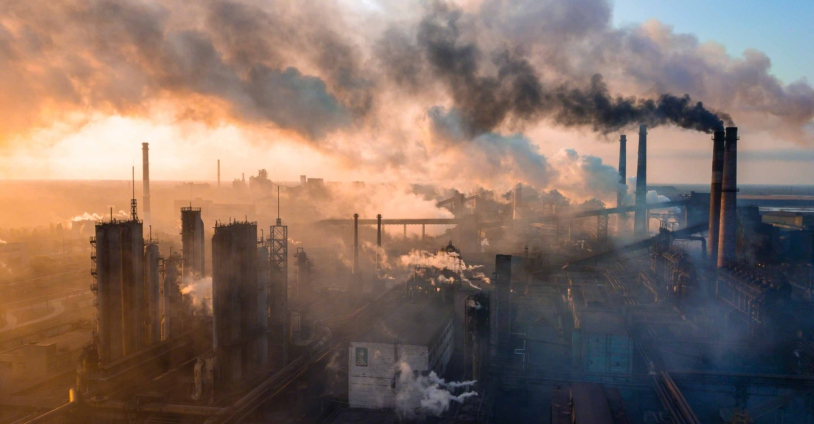A recent United Nations analysis, unveiled on November 20, 2023, reveals that despite countries' existing commitments to curb climate change, global temperatures could still rise by nearly 3 degrees Celsius this century.
The annual Emissions Gap report highlights a significant disparity between nations' climate action promises and the necessary measures, projecting a potential warming of 2.5°C to 2.9°C above preindustrial levels without enhanced efforts.
This raises alarming concerns, as scientists warn that a 3°C temperature increase could trigger irreversible catastrophes, including the widespread melting of ice sheets and the desiccation of the Amazon rainforest.
United Nations Secretary-General, Antonio Guterres has issued a stark warning, stating that current trends are pushing the planet toward an unavoidable 3°C temperature increase. Describing the emissions gap as more of an "emissions canyon," Guterres emphasizes the urgency for a drastic shift in trajectory.
Inger Andersen, Executive Director of the United Nations Environment Programme, echoes the concern, emphasizing the need for immediate action.
The 2023 Emissions Gap Report underscores that implementing and sustaining mitigation efforts outlined in the Paris Agreement could potentially limit temperature rise to 2.9°C by the end of the century. Failure to act, as per the report, would result in a continuous upward spiral of global temperatures.
“Fully implementing conditional NDCs would lower this to 2.5°C. Given the intense climate impacts we are already seeing, neither outcome is desirable,” she said adding that, the imperative now is for the world to break free from the cycle of inadequate ambition and action. It's time to establish new benchmarks in emissions reduction, prioritize green and just transitions, and commit to robust climate finance – commencing without delay.
The fourteenth Emissions Gap Report, released in anticipation of the twenty-eighth session of the Conference of the Parties to the United Nations Framework Convention on Climate Change (COP 28), presents an annual, evidence-based evaluation of the disparity between committed greenhouse gas emissions reductions and the necessary reductions aligned with the Paris Agreement's long-term temperature objective.
The report also explores potential strategies to bridge the identified gap. COP 28 represents the culmination of the initial global stocktake under the Paris Agreement, conducted every five years to evaluate the world's response to the climate crisis and chart a more effective path forward.
The Emissions Gap Report aims to contribute pertinent insights to the concluding discussions during this global stocktake.
In preparation for COP 28 and aiming to guide future nationally determined contributions (NDCs), this report outlines essential outcomes required from the global stocktake. It emphasizes the need for countries to submit updated NDCs in 2025, incorporating emissions reduction targets for 2035.
The report examines actions necessary in this decade and beyond 2030 to uphold the prospect of meeting the Paris Agreement's long-term temperature goal. It underscores the crucial role of strengthening mitigation efforts now to narrow the emissions gap, enabling more ambitious 2035 targets in the next NDCs round. This approach aims to enhance the credibility and feasibility of the widespread net-zero pledges, encompassing about 80% of global emissions.
The new UN report underscores the urgency of slashing global greenhouse gas (GHG) emissions by 42% by 2030 to sustain hopes of limiting warming to the Paris Agreement's ambitious target of 1.5°C. Failure to achieve this reduction will jeopardize the feasibility of meeting the 1.5°C goal and intensify challenges in limiting warming to 2°C. As world leaders gear up for COP28 in Dubai, the report emphasizes the crucial role of immediate and substantial emissions cuts to keep the 1.5°C target within reach.
In the face of the most optimistic emissions scenario, a stark reality looms: the likelihood of limiting warming to 1.5°C now stands at a mere 14%. This disheartening revelation aligns with a mounting body of scientific evidence indicating the demise of the 1.5°C goal.
Global greenhouse gas emissions surged by 1.2% from 2021 to 2022, reaching an alarming record of 57.4 gigatonnes of carbon dioxide equivalent. The urgent need for decisive action to reverse this trend becomes increasingly evident.
The latest climate projections for 2100 reveal a slightly bleaker scenario than anticipated in 2022, with warming levels now estimated between 2.5°C and 2.9°C. This updated forecast results from simulations on additional climate models, offering a more comprehensive understanding of the potential trajectory.
Despite this, it's crucial to acknowledge progress since the 2015 Paris Agreement adoption, as current warming projections, though concerning, are notably lower than initial estimates based on emissions at that time. The journey toward climate resilience demands intensified efforts to address the growing challenges.
Latest Stories
-
CLOGSAG vows to resist partisan appointments in Civil, Local Government Service
16 minutes -
Peasant Farmers Association welcomes Mahama’s move to rename Agric Ministry
18 minutes -
NDC grateful to chiefs, people of Bono Region -Asiedu Nketia
20 minutes -
Ban on smoking in public: FDA engages food service establishments on compliance
21 minutes -
Mahama’s administration to consider opening Ghana’s Mission in Budapest
23 minutes -
GEPA commits to building robust systems that empower MSMEs
25 minutes -
Twifo Atti-Morkwa poultry farmers in distress due to high cost of feed
28 minutes -
Central Region PURC assures residents of constant water, power supply during yuletide
29 minutes -
Election victory not licence to misbehave – Police to youth
30 minutes -
GPL 2024/2025: Nations thrash struggling Legon Cities
33 minutes -
Electoral offences have no expiry date, accountability is inevitable – Fifi Kwetey
33 minutes -
Ghanaians to enjoy reliable electricity this Christmas – ECG promises
40 minutes -
Police deny reports of election-related violence in Nsawam Adoagyiri
44 minutes -
‘We’re not brothers; we’ll show you where power lies’ – Dafeamekpor to Afenyo-Markin
48 minutes -
EPA says lead-based paints are dangerous to health, calls for safer alternatives
3 hours

